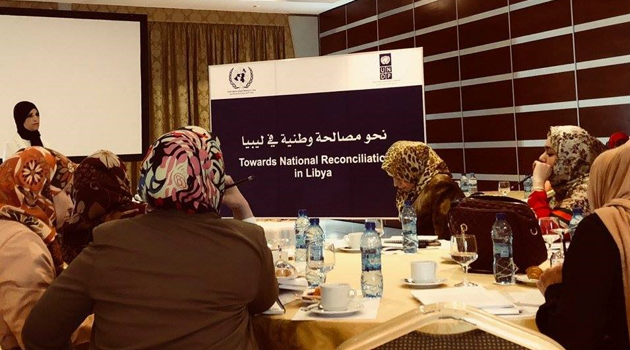Women representatives from main communities of the South of Libya met in Tripoli from 7 to 8 of November to explore tangible ways to achieve sustainable peace in the region.
Organized by United Nations Development Programme (UNDP) and United Nations Support Mission in Libya (UNSMIL), with the support of Promédiation, a non-governmental organization providing expertise in conflict resolution in Southern Libya, the event allowed women activists, mediators, opinion-makers and community actors, mostly from the Awlad Suleiman and Qadhadfa tribes, to discuss their concerns and opinions in an impartial, neutral and confidential environment.
“When I was invited to participate in this meeting, I was very worried knowing that women from Qadadfa tribe will participate as well, because of the conflict between my tribe [Awlad Sulaiman] and Qadadfa tribe,” said one of the participants.
“During these days, we exchanged our views and we dialogued in a peaceful way. We even went deep talking about our concerns. I was surprised to hear Qaddafah women expressing similar ideas to ours and I realized that they have the same goals, aspirations, hopes and dreams on supporting reconciliation than us. They also have the same will of playing a role and participate in reconciliation.”
Reconciliation efforts, including this meeting, lend additional support to Libya in accelerating progress towards achieving Sustainable Development Goals (SDG).
Reconciliation is an important catalyst for sustainable development, as espoused by SDG 16 for peace, justice and strong institutions. Building trust among community members, tribes and community leaders can help solidifying dividends for stability.
Furthermore, as SDG 5 states, gender equality is not only a basic human right but an accelerator for sustainable development. Empowering women to have an active role in Qadadfa-Awlad Sulaiman reconciliation process has a multiplier effect, and helps drive up a peaceful and inclusive society. During the two-day workshop, the participants analyzed the current situation in South, the causes and consequences of conflict and the key role that women can play as mediators to solve conflicts.





